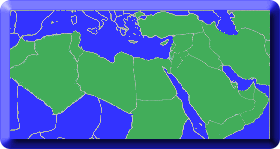
Topics in Middle Eastern and North African Economies
Document Type
Article
Publication Date
9-1-2016
Journal Title
Topics in Middle Eastern and North African Economies
Volume
18
Issue
2
Publisher
Middle East Economic Association and Loyola University Chicago
Abstract
Since the 2011 revolution, Egypt has experienced frequent electricity blackouts and severe shortage in energy supplies. The government responded to the problem by reducing the subsidy on energy for heavy industries, and household electricity use. In addition, the government introduced a smart card system that entails a certain quota of fuel for each registered car per month. It appeared to the public that the Egyptian government is attempting to adopt an energy conservation policy to ration energy consumption and manage the deficit in energy supplies. Given that energy is an essential input for many economic activities, there is a concern that a reduction in energy consumption may dampen the growth potentials of the Egyptian economy. This paper investigates the causal relationship between energy consumption and economic growth in Egypt during the period 1980-2012, within a multivariate framework by including measures for capital and labor in the aggregate production function. Causality is tested using a modified version of the Granger causality test due to Toda and Yamamoto (1995). The analyses endogenously controls for potential structural breaks in the time series when conducting the unit root tests. In addition to aggregate energy consumption, the analysis is also segregated by different components of energy use including oil, electricity, natural gas and coal to account for any potential aggregation bias. No causal relationship was found between total primary energy consumption and economic growth, supporting the neutrality hypothesis. When the analysis is stratified by energy type, a one way positive causal relation running from economic growth to electricity and oil consumption was found which is consistent with the conservation hypothesis. The findings of this study provide empirical evidence that energy conservation policy has no negative effect on the growth prospects of the Egyptian economy in the long-run.
ISSN
2334-282X
Recommended Citation
Fathy Sharaf, Mesbah, "Energy consumption and economic growth in Egypt: A disaggregated causality analysis with structural breaks". Topics in Middle Eastern and North African Economies, electronic journal, 18, 2, Middle East Economic Association and Loyola University Chicago, 2016, http://www.luc.edu/orgs/meea/
Creative Commons License

This work is licensed under a Creative Commons Attribution-Noncommercial-No Derivative Works 3.0 License.
Copyright Statement
© 2016 The Authors



Comments
Presentation of the articles in the Topics in Middle Eastern and North African Economies was made possible by a limited license granted to Loyola University Chicago and Middle East Economics Association from the authors who have retained all copyrights in the articles.